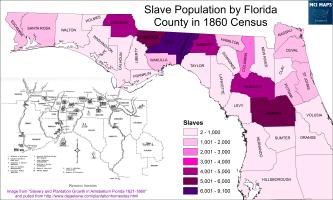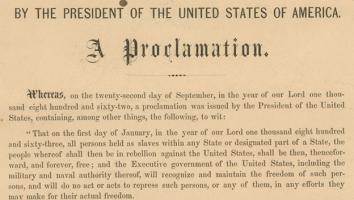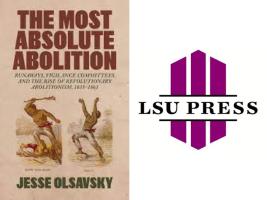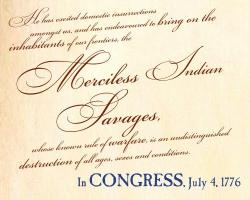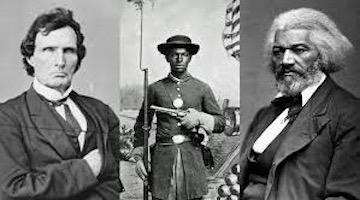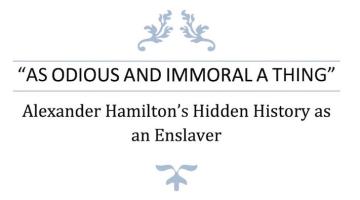The following is an excerpt from The Psychic Hold of Slavery: Legacies in American Expressive Culture, edited by Soyica Diggs Colbert, Robert J. Patterson, and Aida Levy-Hussen. Reprinted with permission from Rutgers University Press.
(From the Introduction, by Soyica Diggs Colbert)
“Do you want to be well?” A question, seemingly so simple, only warrants an affirmative response. But what is wellness, and how do the social conditions that constitute the subject inform the individual’s ability to be well? In a world of shifting power relations (according to Michel Foucault), how does the individual’s decision to be well relate to the complex context of making decisions in general? And if all decisions are made within the context of the subject’s relative and ever-changing relationship to power, then, as the chapters that follow suggest, wellness is a temporally bound state that requires examination of the relationship between trauma of the past and domination in the present.
This book builds on James Baldwin’s depiction in The Fire Next Time of racism as a national illness that prevents the civic body from being well. It focuses, however, on how the national illness of racism affects Black folks. Because we contend that Black people exert a constitutive force on the nation- state, we believe that curing the national illness requires examining the effects of racism on Black people. The question “Do you want to be well?” assumes that the individual actor has the agency and the ability to incorporate and work through the pasts that ail her.
The original title of our book was Do You Want to Be Well: The Psychic Hold of Slavery, a reference to the first line of Toni Cade Bambara’s novel The Salt Eaters (1980). The novel, which begins “Are you sure, sweetheart, that you want to be well?,” features a main character, Velma Henry, who attempts to commit suicide after participating in the 1960s and 1970s civil and women’s rights movements. Those events not only haunt Bambara’s character but also shaped the work of late twentieth-century Black women writers. As Cheryl Wall writes, “to a great extent, the urgent preoccupation with history in the writings of Black women in the 1970s and 1980s registered alarm at the potential loss of a history that had never been accurately recorded.” Beginning with the 1970 publications of The Bluest Eye (Toni Morrison) and The Third Life of Grange Copeland (Alice Walker), Black women writers sought to recuperate partially documented histories.
Although a resurgent interest in the slave past can be traced to the late six- ties, the 1987 publication of Morrison’s Beloved established the spectral nature of the history of slavery as the primary political and epistemological feature of cross-disciplinary African American studies. Morrison posited that exorcising the national ghost of slavery required working through painful histories with no promise of repair. Engaging with traumatic pasts signaled a realization of the psychic, not just juridical, hold of slavery. Morrison’s novel, and the vast literature it inspired, presumed that the revelatory power of intellectual engagement would enable a fuller experience of citizenship. One could also understand engaging with the ghosts of history as a part of an ongoing abolitionist project.
By considering the overlap of late twentieth-century projects that seek to understand the power relations that produce anti-Blackness, The Psychic Hold of Slavery animates a question at the heart of Black studies today: how can we imagine a political future that responds to anti-Black racism in the present as a feature of a long history of Black domination? The intrusive force of the past informs the present and future in our formulation, suggesting that time works in a contrapuntal fashion rather than a linear one. In this view, understanding the time of abolition requires understanding abolition not just as a juridical fiat but also as a psychic and social process elaborated in time. In “Fugitive Justice,” Stephen Best and Saidiya Hartman famously define abolition as an incomplete, future-oriented project. They contend that a justice project “on behalf of the slave (the stateless, the socially dead, and the disposable)” takes place “in the political present.” They clarify that “in posing the question of slavery in terms of the incomplete nature of abolition, we are concerned neither with ‘what happened then’ nor with ‘what is owed because of what happened then,’ but rather with the contemporary predicament of freedom, with the melancholy recognition of foreseeable futures still tethered to this past.”
Critics (including me, as I demonstrate in chapter 7) read “Fugitive Justice” as an assertion of the ongoing impact of transatlantic slavery in the twenty-first century. But Hartman and Best do not confine the “past” in which “the contemporary predicament of freedom” remains tethered to transatlantic slavery but consider how political projects in the present may address contemporary manifestations of slavery. Certainly, as the authors understand, the words slave and abolition have long associations with transatlantic slavery. Nevertheless, the language of “Fugitive Justice” invites abolitionist projects that rethink what pasts structure the formation of contemporary experiences of statelessness, social death, and disposability. Implicitly, the structuring of the essay’s argument also asks us to consider how holding onto certain pasts undercuts justice movements.
Beloved had a powerful impact in shaping the field of African American studies and establishing its ongoing work as an abolitionist project. Thus, it is no surprise that several chapters in The Psychic Hold of Slavery use Morrison’s work as a touchstone. The book, however, curiously avoids an extensive investigation of haunting or the spectral, terms that have been key to the recuperative project of late twentieth-century Black women writers. Our contributors consider how temporality shapes the twenty-first-century subject’s relationship to slavery, forgoing analysis of the ghostly quality of the historical past. (Although all the essays do not agree about the viability or conceivability of the Black subject in the context of western domination, I use the formulation here as placeholder.)
In addition to shifting focus from history to temporality and the past, the book examines how and if slavery functions as the most extreme feature of a system of domination that informs and delimits the possibility for west- ern subjects to be well, to be free of the toxicity of racism. It proposes that our inability—or unwillingness—to “get over” slavery emerges in relationship to contemporary philosophical debates about whether slavery serves as the distinguishing feature of Black social life. To even begin to consider slavery as a feature of western domination rather than a singular manifestation of it dangerously rubs against the grain of some of the most important works in Black studies, including Hortense Spillers’s “Mama’s Baby, Papa’s Maybe.” Yet by considering how twenty-first-century manifestations of anti-Black violence, dehumanization, disposability, and social death emerge in relationship to pasts and presents, our contributors ask how the late twentieth-century orientation to understanding the impact of transatlantic slavery informs and opens an understanding of our current conjuncture. In other words, the book does not seek to diminish the irrecoverable impact of slavery.
The Psychic Hold of Slavery asks, What desires, investments, or identarian logics account for our inability—or unwillingness—to get over slavery? The inquiry into the relationship between slavery and anti-Black domination in general examines how the primary psychic rubric of loss becomes a discursive device that animates contemporary relationships with slavery as a traumatic historical object. To better understand how the primary loss associated with slavery manifests cultural production and criticism in the twenty-first century, the book takes up poetics, film, drama, the novel, and the cartoon. The compulsion to get over slavery also informs aesthetic practices that negotiate the possibility, or lack thereof, to represent slavery.
Soyica Diggs Colbert is the Interim Dean of Georgetown College at Georgetown University, where she is also the Idol Family Professor of African American Studies and Performing Arts.
Robert J. Patterson is a professor of African American Studies and served as the inaugural chair of the Department of African American Studies at Georgetown University (2016-2019).
Aida Levy-Hussen is Associate Professor of English at the University of Michigan.

